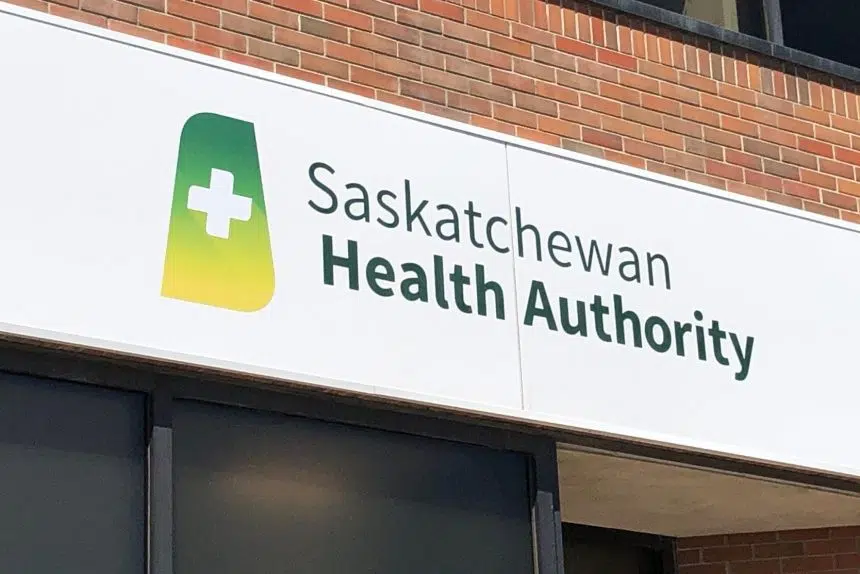The Saskatchewan Health Authority is rolling up its sleeves in hopes of getting more Saskatchewan people to roll up theirs.
With the number of first doses lagging in recent weeks, the SHA is going to start running pop-up vaccination clinics across the province with the goal of increasing the uptake of first doses.
Derek Miller, the SHA’s executive director of infrastructure management, outlined during a media conference Tuesday some of the tactics the authority will be using.
School clinics will be expanded to allow family members who haven’t received a shot to get one. Fast-pass lanes for those seeking first doses will be created at drive-thrus.
Pop-up clinics will be started in malls and pedestrian areas in urban areas, and at sports fields, water parks and recreation areas around the province.
Vaccines will be taken into core neighbourhoods and into big box stores, while the SHA will partner with some large employers to operate clinics at workplaces.
The authority also will continue to educate people on the benefits of getting the vaccine in hopes of convincing them to get a shot.
“We know unvaccinated people are exponentially more likely to get sick, require hospitalization and die and that is proven by itself in the evidence,” Miller said.
“Also, (another reason for the campaign is) Saskatchewan people need relief from the ongoing restrictions on their lives, their livelihoods and their freedoms. And lastly, Saskatchewan residents deserve a summer free from the fear of COVID.”
The daily number of first doses administered in Saskatchewan has stalled of late, leaving the province short of its target of having 70 per cent of people 12 and over vaccinated with one dose. Once that goal is reached, the province can lift all public health measures.
“Our target over this coming week is to really drive that number up and help Saskatchewan cross the line to achieve Step Three opening targets,” Miller said. “But we’re not stopping there. As we progress through the summer, we want to continue to push the uptake past 70 per cent, up to 80 and beyond, for first doses as well as second doses.
“This is so critical for us to ensure that every Saskatchewan resident is safe, their families are safe and we have safe communities and we mitigate the risk of any potential variants on the province.”
Figures provided by the Ministry of Health in its COVID update Tuesday showed the province is more than 30,000 first doses short of its target. Over the past week, an average of just under 2,900 first doses have been administered per day, meaning it would take more than 10 days at the current pace for the government to reach its goal.
As of Tuesday, 48 per cent of individuals between the ages of 12 and 17 have got their first shot. The percentages are slightly higher for people aged 18 to 29 (50 per cent) and 30 to 39 (57 per cent), but the SHA still plans to provide what it called “ the best opportunities for fast and easy vaccinations for this working age group.”
“While COVID is more common in people who are older, we have had hospitalizations and deaths in every age group,” said Dr. Saqib Shahab, the province’s chief medical health officer. “It is really important to bring our vaccination rates up in everyone 12 and over.”
The list of clinics can be found here and it will be updated when new dates, times and locations are announced.
People can still make vaccination appointments online or by phone (1-833-727-5829), or by attending drive-thru or walk-in clinics. They also can get a shot at a participating pharmacy.
Changes to isolation requirements
The government also announced Tuesday that anyone who is (a) 14 days past their second shot at the time of being exposed to a COVID-positive person and (b) asymptomatic doesn’t have to isolate when named as a close contact.
“More than 20 per cent of those 12 and up in Saskatchewan are considered fully vaccinated,” Health Minister Paul Merriman said in a release. “The level of protection provided by two doses of the vaccine is enabling us to announce new guidelines around self-isolation.”
However, the government stressed the change to self-isolation doesn’t apply to people with COVID symptoms.
As well, anyone who hasn’t been vaccinated or who has received only one dose must still self-isolate if they’re named as a close contact.
“Public Health has the discretion to require fully vaccinated close contacts to isolate if they are considered at higher risk of serious illness or for increased transmission, or they live in settings at risk of outbreaks,” the government’s release said.
“Self-isolation of fully vaccinated close contacts may also be required in any health care setting, including long-term and personal care homes and congregate living settings like group homes and corrections facilities.”
The federal government still requires people to self-isolate for 14 days after international travel.







